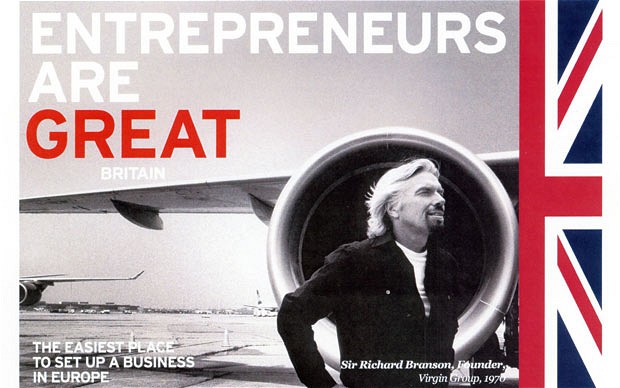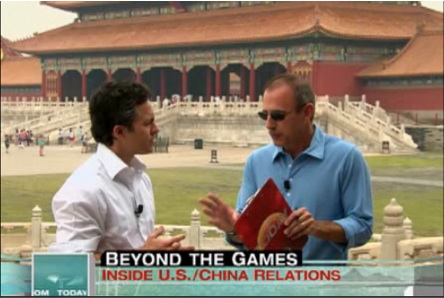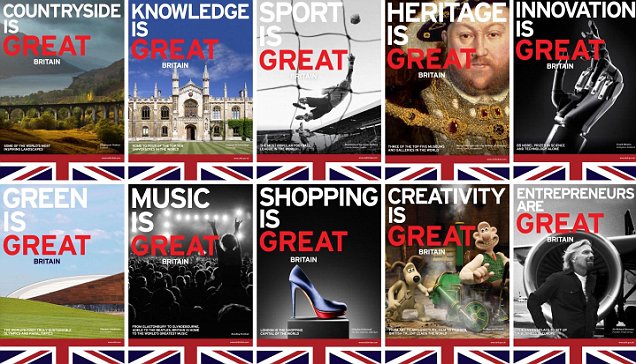From Henry VIII to Flash Mobs: Branding Britain at London 2012
 In August, 2008, tuned into NBC’s coverage of the Beijing Olympic Games, I notice a strangely familiar name scrolling across the screen. Joining Matt Lauer in front of the Gate of Supreme Harmony is Joshua Cooper Ramo, introduced as NBC’s official China Analyst. As Ramo launches into a superlative description of China’s sense of optimism and opportunity and its commitment to egalitarian, environmentally conscious economic growth, I remember where I’ve heard the name. A year earlier, he’d written a report called Brand China for the Foreign Policy Centre (UK). China has an “image emergency,” Ramo warned in the report, a major strategic threat that the country’s leaders ignored at their peril. China was seen as unstable, unapproachable, and untrustworthy, according to Young & Rubicam’s BrandAsset® Valuator. Unless China’s leaders could align foreign perceptions of the country with its current “reality,” it risked slowing reform and limiting international investment. What China needed was a “white brand,” he wrote, an image “onto which we can project our hopes and dreams and desires in the same way you would project an image onto a movie screen” (p. 26).
In August, 2008, tuned into NBC’s coverage of the Beijing Olympic Games, I notice a strangely familiar name scrolling across the screen. Joining Matt Lauer in front of the Gate of Supreme Harmony is Joshua Cooper Ramo, introduced as NBC’s official China Analyst. As Ramo launches into a superlative description of China’s sense of optimism and opportunity and its commitment to egalitarian, environmentally conscious economic growth, I remember where I’ve heard the name. A year earlier, he’d written a report called Brand China for the Foreign Policy Centre (UK). China has an “image emergency,” Ramo warned in the report, a major strategic threat that the country’s leaders ignored at their peril. China was seen as unstable, unapproachable, and untrustworthy, according to Young & Rubicam’s BrandAsset® Valuator. Unless China’s leaders could align foreign perceptions of the country with its current “reality,” it risked slowing reform and limiting international investment. What China needed was a “white brand,” he wrote, an image “onto which we can project our hopes and dreams and desires in the same way you would project an image onto a movie screen” (p. 26).
Watching him hold forth on The Today Show, I realized that Ramo was the one making and marketing China’s white brand. It helps to know that Ramo is managing director and vice chair of Kissinger Associates, a “geostrategic advisory firm” whose CEO is the former U.S. secretary of state (yes, that Kissinger), and that the Brand China report was funded by the multinational PR firm Hill & Knowlton.
I mention all this not only because I write a lot about nation branding and this is an interesting case for critique, but because with the London Games approaching, I wondered if we’d see the same thing. Would NBC feature a Britain Analyst to help viewers make sense of the country’s geostrategic role? Which erudite figure would grab the media spotlight provided by the Olympics to sell Britain’s brand as still-powerful empire and deserving host of the greatest sporting event in the world? NBC announced their choice in April. The network’s Special Correspondent of the Games of the XXX Olympiad would be … Ryan Seacrest. Hm. While this may say a great deal about NBC’s brand (rumor has it that Seacrest is in line to replace Lauer on The Today Show), it helps us little to understand what image Britain is out to portray on the international stage.
As it turns out, that task fell to none other than British Prime Minister David Cameron, who, in September 2011, launched a “Britain is GREAT” promotional campaign. Coordinated by multiple government departments and foreign consulates, with events in 17 cities worldwide, the £37 million image project is designed to use the Games to jumpstart tourism and increase inward investment and job opportunities in the UK. At a speech for business elites in New York during the launch, the PM explained all the ways that Britain was GREAT, inviting the world to “re-discover the unique qualities that make Britain such a compelling destination – for business and tourism, for innovation and entrepreneurship, for world-class creativity and culture.”
I can feel your eyebrows rising into your hairline. Is this the same country whose 2011 yearbook includes phone hacking scandals, banking crises, looting, and riots? The same government that, upon coming to power in 2010, introduced dramatic austerity measures affecting millions of academics, culture workers, and civil servants? The same Prime Minister whose election campaign was built on fixing “broken Britain”? Such was the tone of incredulity seeping from the domestic media as well as international coverage of the campaign from southern India to Vancouver. All of them questioned how portraits of Henry VIII on billboards, flash mobs with dancers dressed as the Spice Girls and Austin Powers, and double-decker buses wrapped in the Union Jack rolling through Shibuya Crossing in Tokyo could possibly paper over the country’s realities. Or perhaps, critics mused, the version of Britain presented abroad was supposed to be entirely different from the domestic version, in hopes that the aspirational image might serve to pull Britain’s “real” self up by its bootstraps? Or is it, as one journalist put it, a sign that Britons face an “identity crisis,” lost as to “what it means to be British in the world”?
One of the problems with nation branding is that it’s easy to make fun of but hard to take seriously. By this I mean that these media critiques miss the ways in which these national image campaigns are even more problematic than they initially appear. There are a thousand things wrong with the “Britain is GREAT” and China’s white brand campaign. It doesn’t take much to poke holes in these overinflated efforts at aligning image with something called reality. My concern, though, is with the ways this and other branding campaigns express not a renewed national image but a renewed national reality.
In “branding” Britain for the world, Cameron and his cohorts are redrawing the boundaries of the nation as an apolitical, anachronistic space for consumers and investors, while reforming its citizens as stateless, entrepreneurial, business-minded, corporate-creative workers. To say that Britain is GREAT at this world-historical juncture is to dismiss out of hand the current crises bred of political and fiscal hypocrisy, mismanagement, and corruption, to deny the abject failure of our economic growth models, and to subtly shift responsibility for getting us out of this mess away from those most deeply responsible for getting us into it. Turning a country into a brand may give the world flash mobs and circuses. But brand value isn’t the same as moral values, and this campaign won’t do anything to reinstate confidence in Britain’s leaders. Buyer beware.




